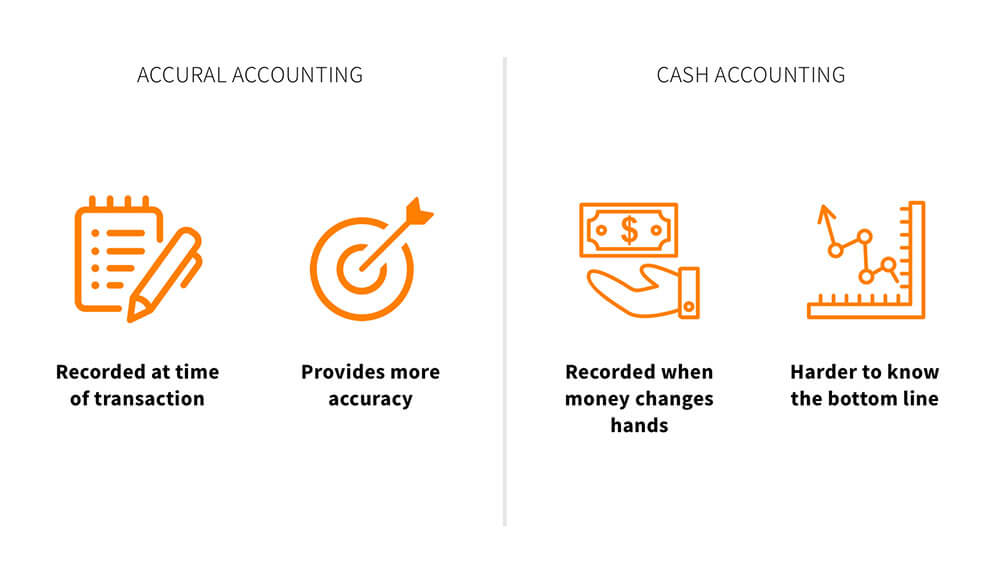

Quick Links
Quick Links

Over the last 20 years, Amazon has changed the face of retail in many markets around the world. During this period, the accounting industry has also undergone a great deal of disruption.
Cloud-based software has removed the requirement for manually backing up financials at the end of each day and opened up a range of doors for improved efficiency.
You Need to Automate Amazon Accounting
Amazon sellers have a range of advantages that retailers haven’t previously been able to access in the past. With more data available than ever before, one of the key challenges is recording and processing the correct information in the right way so that you can have actionable insights when you need them.
In this article, we take a closer look at:
- key elements of automating your Amazon accounting
- technologies to help reduce your workload
- benefits of maintaining accounts on an accrual basis
- why you should work with a specialist accountant instead of a generalist bookkeeper
By getting your Amazon accounting done right, you can free up time to focus on bigger opportunities.
The Best Accounting Tech Stack for Amazon FBA Sellers

The level of sophistication that your tech stack requires does vary depending on the complexity and size of your business. If you only make a handful of sales each month as an individual seller, then the free reports provided by Seller Central will probably be sufficient to maintain an accurate set of accounts.
However, as your business begins to grow, it’s important to consider how you are going to handle larger amounts of information in an accurate manner. Once you are confident that your business is capable of providing a sustainable source of income, it’s time to work out the best tech stack to implement moving forward.
There are plenty of powerful tools and automations available for Amazon sellers. Some of these tools exist to make accounting and record keeping much easier. Here are the key areas that are worth looking at first:
1. Cloud Accounting Systems
Compared to outdated desktop-based accounting software, cloud operations such as Xero and QuickBooks Online provide an indispensable set of tools that allow you to run your business from anywhere in the world.
They remove the need for manual backups of critical information and ensure that your key financial data is properly managed and stored securely. Cloud accounting systems integrate into a wide range of platforms and marketplaces to help ensure that you are recording and collecting the right information.
2. Revenue Recognition System

By combining your cloud accounting system with a revenue recognition tool such as A2X, the process of accurately recording Amazon transactions is much easier.
Amazon pays most sellers once every fortnight. Merchants receive any sales revenue minus fees, refunds and returns. Many sellers record the amount of money received as revenue; however, this leads to a range of issues as the business grows:
- Total revenue and expenses are recorded at a lower amount than they actually represent.
- If Amazon changes their fee structure, or if you are charged erroneous fees, it is quite difficult to spot this without looking at detailed reports.
- If you’re selling across multiple channels, it is very hard to make meaningful comparisons due to the fact that revenues and expenses are inaccurately recorded on Amazon.
A2X removes these issues by correctly recording all Amazon transactions in your accounting system. How does it work?
For each settlement payment, Amazon creates a settlement file within Seller Central. This document contains a breakdown of all the transactions that make up the total settlement amount. A2X fetches this information, crunches the numbers and generates a summary of the revenue, fees and other transactions.
With this information, A2X then creates invoices or journals from each settlement and posts them to your cloud accounting system. This way, when the settlement payment arrives in your bank account, it is very easy to reconcile the money received to sales and expenses incurred.
3. Sales Tax Software
“Sales tax is collected by the retailer when the final sale in the supply chain is reached via a sale to the end consumer… Tax jurisdictions do not receive the tax revenue until the sale is made to the final consumer.”
Keeping on top of your sales tax obligations can get very complex, especially in the United States where 46 different states apply their own laws surrounding how sales tax is governed. Not only does commerce get taxed at the state level, but local authorities also charge sales tax at varying rates, depending on their budget requirements.
By making use of automated sales tax software such as TaxJar or Taxify, it is possible to make the process of calculating, reporting and paying sales tax a breeze.
Here’s a short video that demonstrates how TaxJar simplifies Amazon accounting:
4. Analytics Software
“An accounting system is a 50,000 foot view. It helps you see your whole business, all of the land and you can kinda see some little features here and there. But if you wanna zoom in and look at a very narrow part of your business and try to get detail, granular detail, then that’s where analytics come into it.”
Source
We often chat with sellers that have built their own tech stack, with the intention of using accounting software to do analytics (or vice versa). In the early stages of your business, you can get away with using accounting software for analytics, but as you grow, it is a good idea to consider implementing a proper analytics system. When running an Amazon FBA business, there are plenty of decisions that need to be made on a regular basis.
By setting up a proper analytics system such as Hello Profit, it is possible to incorporate data into your decision making like never before. Whilst analytics is not the same as accounting, by understanding the key differences, you can focus on using the right tools for the tasks where they perform best.
Bonus Tips to Automate Amazon Accounting
1. Cash Coding vs. Accrual Accounting

“The difference between cash and accrual accounting lies in the timing of when sales and purchases are recorded in your accounts. Cash accounting recognizes revenue and expenses only when money changes hands, but accrual accounting recognizes revenue when it’s earned, and expenses when they’re billed”
Sellers often record their transactions based on when money changes hands. This means recording revenues when settlement payments are received and expenses when they pay suppliers or other intermediaries. This is known as cash accounting, it is the simplest way of accounting for the transactions in your Amazon FBA business.
However, as we previously mentioned, recording settlement payments as net revenue leads to issues with the accuracy and comparability of sales information between different channels (revenue and expenses are recorded incorrectly).
Settlements often include transactions from two different months, which are lumped into the same entry under the cash method. By using the accrual approach to accounting (with revenue recognition software like A2X), it is possible to gain a much more accurate understanding of your financials that is comparable across different sales channels and time periods.
2. Work with a Specialist Accountant

“Once you’ve decided to seek support with your accounting, the next step is choosing the right person. Unfortunately, it’s not as simple as Googling local accountants. Many traditional accountants don’t have much knowledge about the complexities of e-commerce, let alone the specifics of Amazon marketplace selling, and may not be up to date with the latest online accounting software.”
Whilst the fundamentals of accounting are practically the same for all different industries, there are a range of reasons why it’s a good idea to consider hiring a specialist accountant:
- Accountants often look at key metrics in your business to provide advice and guidance. What might seem like a good figure in one industry could be bad news for another business. For example, FBA storage fees are much more expensive than typical contract warehousing services, but the benefits of using FBA (which a generalist accountant might not know) almost always outweigh the added cost.
- Specialist accountants have an intimate understanding of the tax laws and optimal legal structures for your type of business. They can provide advice that is better suited to your specific situation, and are up to date with the latest changes to regulation.
- Ecommerce specialist accountants tend to have the best understanding of which apps and automations are best suited for your business, with knowledge of how to effectively operate them. As time progresses, this reduces the amount of work required to get your accounts done and increases the accuracy of recorded information.
- By working with specialists that understand the relevant tax laws and technology available, there is much less risk of being penalized for non-compliance with relevant laws.
3. Hire Freelancers
You can find many freelancers who specialize in Amazon accounting. Hiring a freelance accountant is more beneficial to your business because it lowers your costs and allows you to hire the best talent available. You can also hire other skilled and experienced freelancers to work alongside the specialist.
In terms of cost, freelancers are more feasible for small businesses. Hiring full-time staff is a huge responsibility. When hiring freelancers, you only pay them for work actually done. You call them when you need their services, no strings attached.
In terms of talent, hiring freelancers opens you up to a global pool of talent. You’re not limited to what’s available in your local area, so you can more easily find an accounting rockstar who both fits your business culture and won’t burn a hole in your pocket;
Just make sure you hire from a dependable marketplace like FreeeUp so you can avoid the common hiring mistakes and make sure you’re getting people who have experience with Amazon. FreeUp makes the process of scaling your Amazon business a lot more efficient.
Final Thoughts
The world of accounting is changing rapidly. With disruptive innovations and interesting plugins growing in prominence, the market is trending towards niche accountants that are highly skilled in narrow verticals. By zooming in on a captive market rather than trying to be all things to everyone, it is possible for accountants to provide much more value to clients and grow a highly efficient business as a result.
